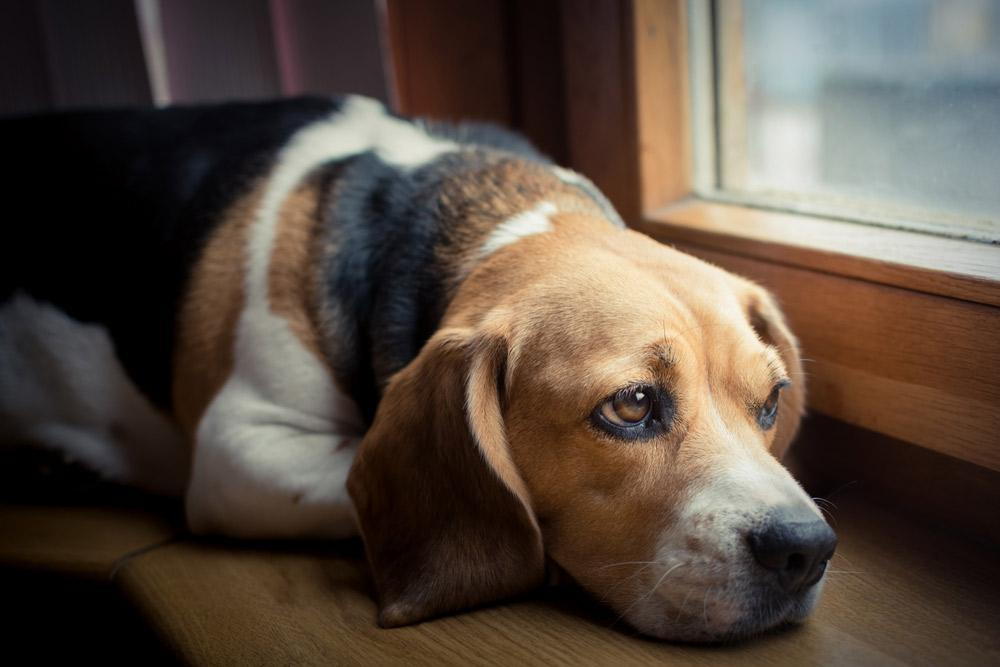Pet Coughing and Sneezing

- posted: May 18, 2021
Coughing and Sneezing in Pets
Coughing or sneezing is not always cause for concern in pets. However, if these symptoms are persistent and frequent, they could be a sign of illness. It is important to get veterinary care for your pet right away. At TLC Animal Hospital in El Paso, TX, we will diagnose and treat your pet for coughing, sneezing, or other conditions.
Why Is My Pet Coughing or Sneezing?
There are two reasons why your pet may be sneezing. Either the nasal mucous membranes are inflamed, or there is foreign debris in the nasal passages. When a pet is subjected to an irritant or has an upper respiratory infection, the nasal membranes get inflamed. Coughing may occur in pets for a variety of reasons. Some are minor in nature, whereas some are more severe. Coughing may be the result of a pet drinking too much water too quickly, or it may be the first symptom of more severe heart or lung issues. Most instances of coughing in pets include pain or inflammation of the airways.
Sneezing in Pets
- The majority of sneezing in dogs and cats examined by our veterinarians have upper respiratory infections.
- Sneezing is sometimes the only sign of these moderate infections.
- Kennels, dog parks, grooming parlors, and pet shops are common places for pets to encounter infectious microbes.
- Airborne viruses and bacteria are the most frequent causes of colds.
- The feline herpes virus, also known as feline viral rhinotracheitis (FVR), is one virus that often causes sneezing in pets.
- Some viruses, such as the calicivirus and bacteria like chlamydia, can induce sneezing in felines.
Coughing in Pets
- Coughing can occur in some breeds of pets that have anatomic problems with their airways, such as elongated soft palates.
- Shih Tzus, Boston Terriers, Bulldogs, Pugs, and Pekingese dogs are common examples of brachycephalic breeds that have been observed with these issues.
- Coughing is also a possibility in Persian cats with flat faces.
- Toy breed dogs, particularly those that are overweight, are more vulnerable to narrowed windpipes or tracheas, resulting in a goose honk cough.
- Pets with infections in the teeth and gums are vulnerable to secondary infections of the airways and coughing.
Schedule an Appointment with Our Veterinarians
If your pet is sneezing or coughing frequently or has other symptoms, seek treatment immediately. At TLC Animal Hospital in El Paso, TX, our team of qualified veterinarians that will ensure your pet recovers from whatever condition it is suffering from. To learn more about our services or to schedule an appointment, call us today.

- posted: May 18, 2021
Coughing and Sneezing in Pets
Coughing or sneezing is not always cause for concern in pets. However, if these symptoms are persistent and frequent, they could be a sign of illness. It is important to get veterinary care for your pet right away. At TLC Animal Hospital in El Paso, TX, we will diagnose and treat your pet for coughing, sneezing, or other conditions.
Why Is My Pet Coughing or Sneezing?
There are two reasons why your pet may be sneezing. Either the nasal mucous membranes are inflamed, or there is foreign debris in the nasal passages. When a pet is subjected to an irritant or has an upper respiratory infection, the nasal membranes get inflamed. Coughing may occur in pets for a variety of reasons. Some are minor in nature, whereas some are more severe. Coughing may be the result of a pet drinking too much water too quickly, or it may be the first symptom of more severe heart or lung issues. Most instances of coughing in pets include pain or inflammation of the airways.
Sneezing in Pets
- The majority of sneezing in dogs and cats examined by our veterinarians have upper respiratory infections.
- Sneezing is sometimes the only sign of these moderate infections.
- Kennels, dog parks, grooming parlors, and pet shops are common places for pets to encounter infectious microbes.
- Airborne viruses and bacteria are the most frequent causes of colds.
- The feline herpes virus, also known as feline viral rhinotracheitis (FVR), is one virus that often causes sneezing in pets.
- Some viruses, such as the calicivirus and bacteria like chlamydia, can induce sneezing in felines.
Coughing in Pets
- Coughing can occur in some breeds of pets that have anatomic problems with their airways, such as elongated soft palates.
- Shih Tzus, Boston Terriers, Bulldogs, Pugs, and Pekingese dogs are common examples of brachycephalic breeds that have been observed with these issues.
- Coughing is also a possibility in Persian cats with flat faces.
- Toy breed dogs, particularly those that are overweight, are more vulnerable to narrowed windpipes or tracheas, resulting in a goose honk cough.
- Pets with infections in the teeth and gums are vulnerable to secondary infections of the airways and coughing.
Schedule an Appointment with Our Veterinarians
If your pet is sneezing or coughing frequently or has other symptoms, seek treatment immediately. At TLC Animal Hospital in El Paso, TX, our team of qualified veterinarians that will ensure your pet recovers from whatever condition it is suffering from. To learn more about our services or to schedule an appointment, call us today.
Office Hours
Monday
8:00 AM - 5:30 PM
Tuesday
8:00 AM - 5:30 PM
Wednesday
8:00 AM - 5:30 PM
Thursday
8:00 AM - 5:30 PM
Friday
8:00 AM - 5:30 PM
Saturday
8:00 AM - 12:00 PM
Sunday
Closed
Walk In Hours
In case of emergency or an urgent health need after posted walk-in times, please call or consult with the front desk to check doctor availability
Monday
8:00 am - 4:00 pm
Tuesday
8:00 am - 4:00 pm
Wednesday
8:00 am - 4:00 pm
Thursday
8:00 am - 4:00 pm
Friday
8:00 am - 4:00 pm
Saturday
8:00 am - 10:00 am
Sunday
Closed



